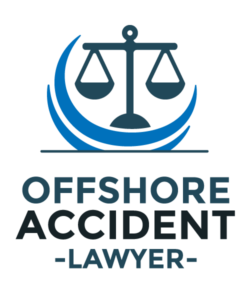How Negligent Factors Can Lead to Oil Rig Explosions
Oil rig accidents are among the most serious events that can occur in offshore drilling. While an oil rig explosion is relatively rare compared to the total number of rigs in operation, the consequences can be devastating. A single event can cause catastrophic injuries, fatalities, and environmental harm.
An oil platform explosion today would draw immediate global attention—both for its human cost and for the impact on surrounding waters. And in many cases, negligence plays a central role in these tragedies.
Common Negligent Factors That Cause Explosions

Negligence on oil rigs takes many forms, and when multiple issues occur together, the risk of disaster increases. Common causes include:
- Ignoring or bypassing established safety protocols
- Electrical systems and wiring not properly grounded
- Malfunctioning or outdated equipment
- Failure to perform regular maintenance on rig machinery, pipelines, and safety systems
- Leaks in pipes, hoses, or pipelines
- Defective batteries or ventilation systems
- Faulty fire suppression equipment
- Untrained or inexperienced crew members
Even a single equipment failure can cause an explosion of oil rig facilities, especially if safety systems are also compromised. However, investigations show that most oil rig mishaps result from a chain reaction—where poor maintenance, defective components, and human error combine to create the perfect conditions for disaster.
What the Deepwater Horizon Explosion Investigations Revealed
One of the most notorious oil rig disasters occurred on April 20, 2010, when the Deepwater Horizon rig exploded in the Gulf of Mexico. Eleven workers were killed, and millions of gallons of oil spilled into the ocean, making it one of the worst environmental disasters in U.S. history.1
Investigations revealed multiple negligent factors, including:
- Faulty Equipment: Valves failed, and the blowout preventer’s backup battery and switching system were defective.
- Inadequate Safety Systems: Gas alarms were present, but the systems meant to prevent gas from spreading failed.
- Poor Cementing Work: The cement used to seal the well was improperly formulated, allowing dangerous pressure to build.
- Crew Errors: Workers misinterpreted pressure tests and routed mud and gas into a separator device rather than away from the rig.
The Deepwater Horizon case illustrates how oil rig incidents often involve multiple preventable problems rather than a single isolated mistake.
Preventing Oil Rig Explosions

While offshore drilling carries inherent risks, many oil rig accidents can be prevented through a strong safety culture and adherence to best practices. These include:
- Comprehensive and ongoing training for all crew members
- Regular inspection and maintenance of all safety systems
- Immediate repair or replacement of faulty equipment
- Strict compliance with safety protocols and industry regulations
- Frequent emergency drills to prepare for potential hazards
By following these measures, companies can significantly reduce the chances of an explosion on oil rig facilities and protect their workforce from preventable harm.
FAQs
How can oil rigs explode?
The combination of flammable materials, high-pressure drilling systems, and complex machinery creates conditions where, if safety measures fail, an explosion can occur. Common causes include equipment failure, gas leaks, electrical malfunctions, and human error. In many cases, several of these factors happen at the same time due to negligence.
How often do oil rigs explode?
On the U.S. Outer Continental Shelf, the Bureau of Safety and Environmental Enforcement’s Offshore Incident Statistics report 4 explosions in 2021, 1 in 2022, and 0 in 2023. These figures show explosions are uncommon year to year, though totals can vary. The counts reflect calendar‑year incident reports submitted to BSEE and may be updated as investigations conclude.2
What should you do after being injured in an oil rig explosion?
If you are injured in an oil rig explosion, your first priority should be getting immediate medical attention. Report the incident to your supervisor as soon as possible and document what happened, including any unsafe conditions you noticed. Then, consult an attorney experienced in maritime law to understand your rights under the Jones Act and other protections that may allow you to recover compensation.
Legal Rights After an Oil Rig Explosion

Workers injured in oil rig explosions have rights under the Jones Act and other maritime laws. These laws allow injured workers or their families to seek compensation for medical bills, lost wages, and other damages. If negligence played a role in the incident, those responsible can be held accountable.
If you or a loved one has been injured in an oil rig accident, contact Schechter, Shaffer & Harris to speak directly with an experienced offshore injury attorney. Our team can review your case, explain your rights, and help you pursue the compensation you deserve.
Sources:
- Environmental Protection Agency. Deepwater Horizon – BP Gulf of America Oil Spill.
- Bureau of Safety and Environmental Enforcement. Offshore Incident Statistics.
The post How Negligent Factors Can Lead to Oil Rig Explosions appeared first on Maintenance and Cure.
Source: Read More



